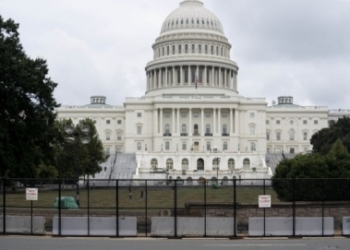New Delhi: As social media platforms, especially Elon Musk-run X (formerly Twitter) face intense scrutiny over promoting antisemitism, Islamophobia and anti-Palestinian hate, Gaza’s Gen-Z social warriors are fighting on their own to disseminate pro-Palestinian voices to their followers despite mounting challenges.
One such digital platform for Gen-Z and millennial Muslims — called Muslim and founded by Palestinian Ameer Al-Khatahtbeh — is charting a new path for his community amid the disinformation around the Israel-Gaza war.
The Muslim brand consists of its main site, Muslim.co, where articles on news, opinions, lifestyle and culture are regularly posted; its Instagram page @Muslim and its TikTok, Snapchat, and Twitter handles to stop the flow of misinformation.
“I couldn’t find a Muslim community on Instagram so I created it,” Al-Khatahtbeh told Insider a couple of years back. “For me, the content is for Gen Z Muslims, and who knows the best way to cater to them than a Gen Z Muslim themselves?”
Years later, Al-Khatahtbeh, 25, has amassed more than 2 million followers on TikTok and more than 5.3 million on Instagram, where posts to his account, @Muslim gives the latest news from the Israel-Gaza war.
“There are a lot of people that had their posts taken down or were restricted from using Instagram’s live video feature for posts supporting Palestinians,” he told The Washington Post.
The Israel-Gaza war has again placed TikTok at the centre. On TikTok, both the #Israel and #Palestine hashtags have attracted tens of billions of views as young people turn to the platform for news and perspectives on the conflict.
A pro-Palestinian hashtag, #freepalestine, had around 770 million views in the US, according to TikTok data.
TikTok, like Facebook and YouTube, bans videos or comments promoting Hamas under its rules against extremist groups.
According to Al-Khatahtbeh, he has seen some Palestinian creators get bullied and threatened.
He was quoted as saying in the report that some videos had been made mocking Palestinians who had been killed in Israeli airstrikes.
Noor Tagouri, a pro-Palestinian creator and the founder of At Your Service, was quoted as saying that “sharing of pro-Palestinian content on TikTok suggests that Gen Z viewers are not just mimicking what they see on their feeds”.
“People are just witnessing what’s happening and choosing to stand up for humanity and life,” Tagouri said.
Earlier, as pro-Hamas accounts flooded various social media platforms amid the ongoing Israel-Hamas war, Big Tech companies like Meta, X (formerly Twitter), Telegram and others had to fix their content moderation algorithms to stop the flow of misinformation.
X, though, continues to host the overwhelming majority of a sample of posts that breach platform rules for promoting antisemitism, Islamophobia, anti-Palestinian hate and other hateful rhetoric in the wake of the Israel-Gaza crisis, the Center for Countering Digital Hate has found.
Imran Ahmed, CEO and founder of the Center for Countering Digital Hate (CCDH), said that X has sought to reassure advertisers and the public that they have a handle on hate speech, “but our research indicates that these are nothing but empty words.”
Researchers collected a total of 200 hateful posts that were published after Hamas’ attacks on Israel on October 7 — all of which either directly addressed the ongoing conflict, or appeared to be informed by it.
Despite having a full week to process the reports, researchers found that X continued to host 98 per cent (196) of the 200 posts. In total, the posts that remained up have accrued 24,043,693 views.
Out of the 101 accounts in the study, only one was suspended and a further two “locked”.
“Our ‘mystery shopper’ test of X’s content moderation systems — to see whether they have the capacity or will to take down 200 instances of clear, unambiguous hate speech — reveals that hate actors appear to have free rein to post viciously antisemitic and hateful rhetoric on Musk’s platform,” said Ahmed.
(IANS)
















